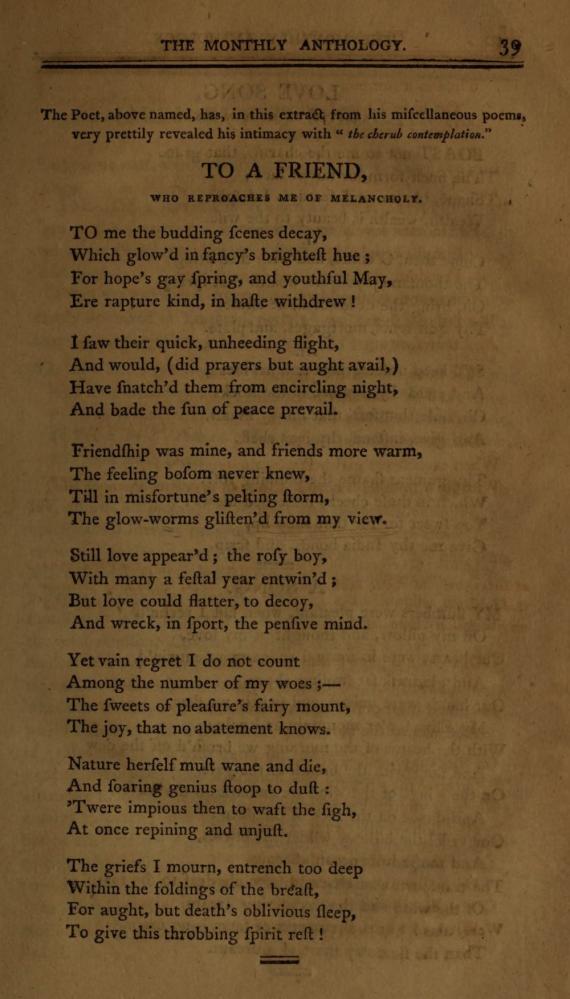ANONYMOUS, “To A Friend Who Reproaches Me of Melancholy,” in the Monthly Anthology, and Boston Review Containing Sketches and Reports of Philosophy, Religion, History, Arts, and Manners, November 1, 1803
ANONYMOUS, “To A Friend Who Reproaches Me of Melancholy,” in the Monthly Anthology, and Boston Review Containing Sketches and Reports of Philosophy, Religion, History, Arts, and Manners, November 1, 1803
TO A FRIEND,
Who reproaches me of Melancholy.
To me the budding scenes decay,
Which glow’d in Fancy’s brightest hue;
For Hope’s gay spring, and youthful May,
Ere rapture kind, in haste withdrew!
I saw their quick, unheeding flight,
And would (did prayers but ought avail,)
Have snatch’d them from encircling night,
And bade the sun of peace prevail.
Friendship was mine, and friends more warm,
The feeling bosom never knew,
Till, in Misfortune’s pelting storm,
The glow-worms glisten’d from my view.
Still, Love appear’d; the rosy boy,
With many a festal year entwin’d;
But Love could flatter, to decoy;
And wreck, in sport, the pensive, mind.
Yet vain regret I do not count
Among the number of my woes;—
The sweets of pleasure’s fairy mount,
The joy that no abatement knows.
Nature herself must wane and die,
And soaring Genius stoop to dust;
’Twere impious, then, to waft the sigh,
At once repining and unjust.
The griefs I mourn, entrench too deep
Within the foldings of the breast,
For aught, but death’s oblivious sleep,
To give this throbbing spirit rest!
Monthly Anthology, and Boston Review,
November 1803 (printed here following
publication in London in 1797 and 1802)

